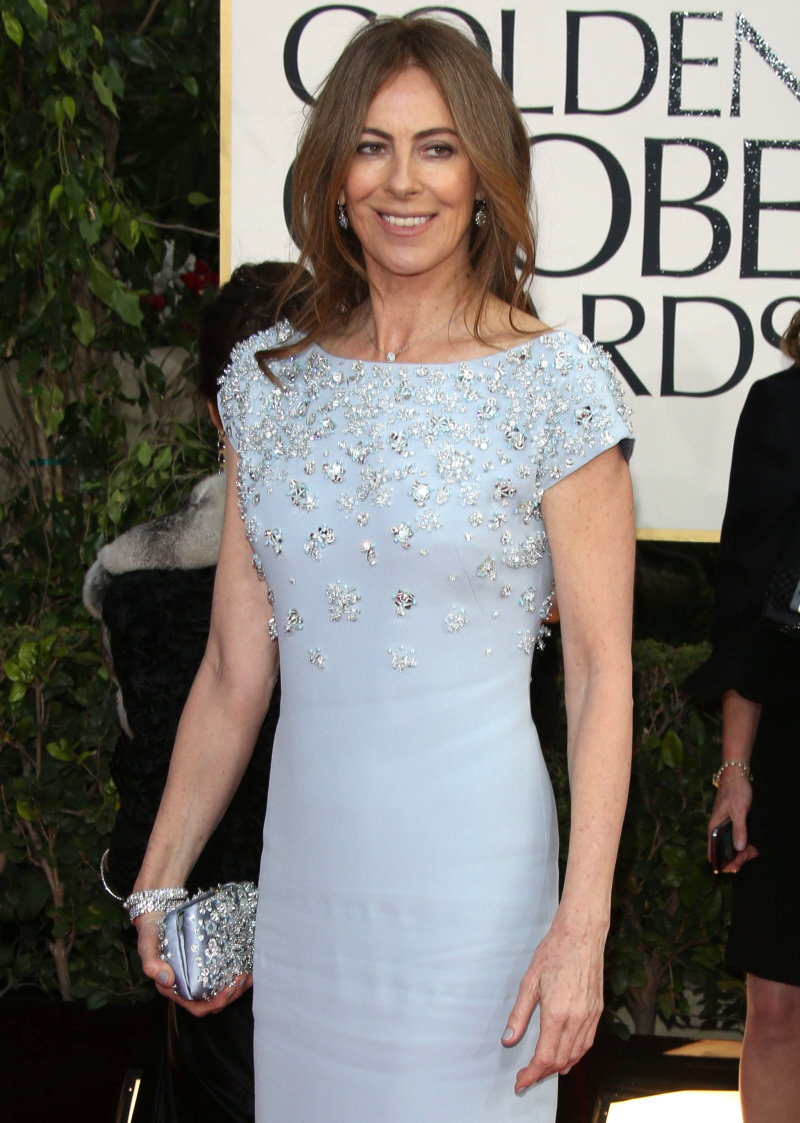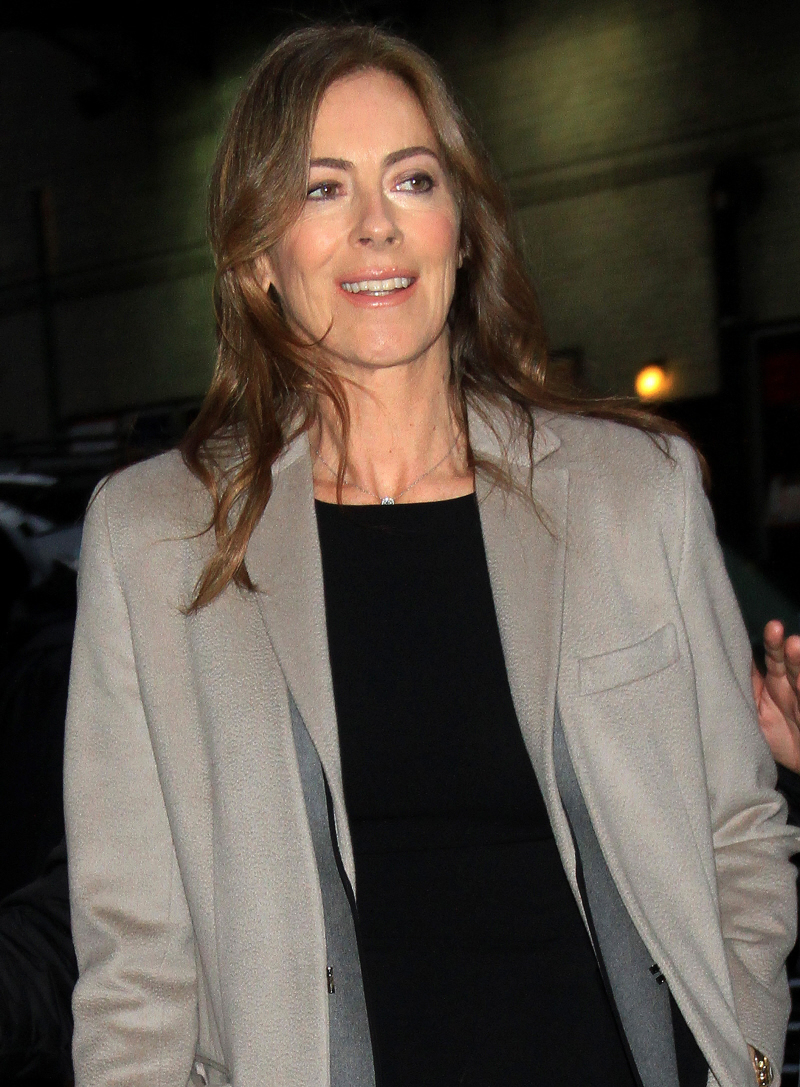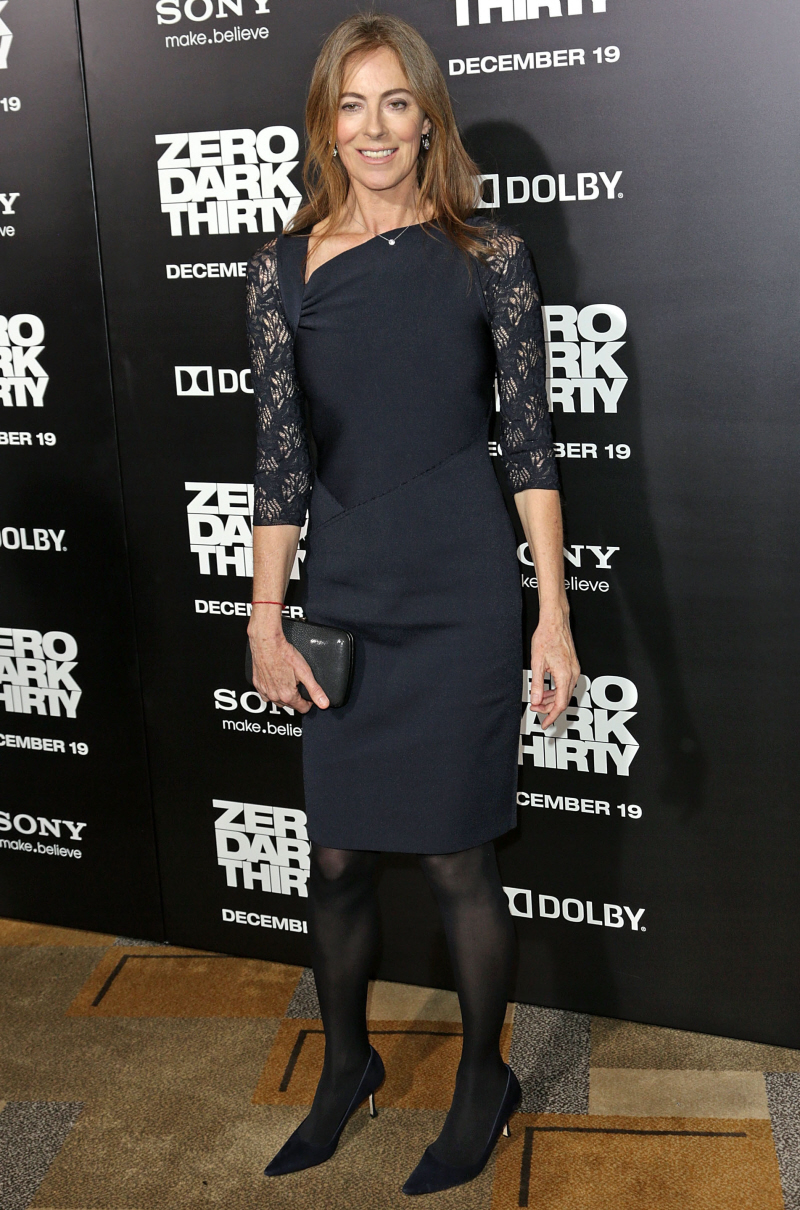I feel like I’ve been name-dropping (film-dropping?) Zero Dark Thirty all week. I know I’ve mentioned it in like half a dozen posts already. In my defense, I just saw it over the weekend I think it’s a really, really good film. I don’t really understand the “generation-defining film” or “Best film of the decade” labels being given to ZDT, but it was a well-made, thought-provoking, bold, interesting film with great performances. I don’t think it’s the definitive “killing Bin Laden” movie (at least, I hope not), but I took it as more “This is what the CIA is like now, this is how CIA officers had to change and respond to the changing intelligence landscape, this is a microcosm of the successes and failures of modern intelligence work.”
So it’s sad to me, having seen ZDT, that the conversation about the film is dominated by the continuously nonsensical debate about torture and what constitutes torture and how we do and do not torture people. Once you see the film… I don’t know, I didn’t come out of it thinking “OMG, torture is awesome, torture always brings such great leads!” The point that’s made in ZDT is cold, cynical and brief: torture dehumanizes not just the tortured, but the torturers. No one “wins” and torture is either zero-sum gain or it causes more problems than it solves. As Jason Clarke’s character tells Maya (Jessica Chastain’s character), “Politics are changing and you don’t want to be the last one holding the dog collar when the oversight committee comes.”
But still, people are freaking out and they will continue to freak out and blame Kathryn Bigelow for daring to portray methods of “enhanced interrogation” which were debated on the floor of the Senate and publicly and legally pushed by President Bush, VP Dick Cheney and their team of revenge-seeking Washington sadists (see: John Yoo, John Bybee, David Addington). I believe that Kathryn Bigelow’s snub for a Best Director Oscar nomination was about this controversy in particular. So, at long last, Bigelow has written a defense of her film and her portrayal of torture. Here you go:
For a long time, measuring more years than I care to count, I thought the movie that became “Zero Dark Thirty” would never happen. The goal, to make a modern, rigorous film about counter-terrorism, centered on one of the most important and classified missions in American history, was exciting and worthy enough, or so it seemed. But there were too many obstacles, too many secrets, and politicians standing in the way of an easy path.
Somehow, though, thanks to the great persistence of my filmmaking team and an enormous dose of luck, we got the movie made and found studio partners with the courage to release it.
Then came the controversy.
Now that “Zero Dark Thirty” has appeared in cinemas nationwide, many people have asked me if I was surprised by the brouhaha that surrounded the film while it was still in limited release, when many thoughtful people were characterizing it in wildly contradictory ways.
The Times asked me to elaborate on recent statements I’ve made in response to these issues. I’m not sure I have anything new to add, but I can try to be concise and clear.
First of all: I support every American’s 1st Amendment right to create works of art and speak their conscience without government interference or harassment. As a lifelong pacifist, I support all protests against the use of torture, and, quite simply, inhumane treatment of any kind.
But I do wonder if some of the sentiments alternately expressed about the film might be more appropriately directed at those who instituted and ordered these U.S. policies, as opposed to a motion picture that brings the story to the screen.
Those of us who work in the arts know that depiction is not endorsement. If it was, no artist would be able to paint inhumane practices, no author could write about them, and no filmmaker could delve into the thorny subjects of our time.
This is an important principle to stand up for, and it bears repeating. For confusing depiction with endorsement is the first step toward chilling any American artist’s ability and right to shine a light on dark deeds, especially when those deeds are cloaked in layers of secrecy and government obfuscation.
Indeed, I’m very proud to be part of a Hollywood community that has made searing war films part of its cinematic tradition. Clearly, none of those films would have been possible if directors from other eras had shied away from depicting the harsh realities of combat.
On a practical and political level, it does seem illogical to me to make a case against torture by ignoring or denying the role it played in U.S. counter-terrorism policy and practices.
Experts disagree sharply on the facts and particulars of the intelligence hunt, and doubtlessly that debate will continue. As for what I personally believe, which has been the subject of inquiries, accusations and speculation, I think Osama bin Laden was found due to ingenious detective work. Torture was, however, as we all know, employed in the early years of the hunt. That doesn’t mean it was the key to finding Bin Laden. It means it is a part of the story we couldn’t ignore. War, obviously, isn’t pretty, and we were not interested in portraying this military action as free of moral consequences.
In that vein, we should never discount and never forget the thousands of innocent lives lost on 9/11 and subsequent terrorist attacks. We should never forget the brave work of those professionals in the military and intelligence communities who paid the ultimate price in the effort to combat a grave threat to this nation’s safety and security.
Bin Laden wasn’t defeated by superheroes zooming down from the sky; he was defeated by ordinary Americans who fought bravely even as they sometimes crossed moral lines, who labored greatly and intently, who gave all of themselves in both victory and defeat, in life and in death, for the defense of this nation.
Yeah. Cosign. I completely agree that if you want to be angry about the portrayal of torture in a film, you should probably direct your anger at the men who wrote The Torture Memos and opened the door for “enhanced interrogations” rather than the artist who is struggling to accurately DEPICT NOT ENDORSE those methods. #TeamBigelow
Photos courtesy of WENN.

















Is it me or is this totally what Liz Hurley would look like if she laid off the botox?
that’s who it is! thank you, it was annoying me
I kinda think she looks like she could be Kate Middleton’s older sister.
yes! I see it too. she’s also got a bit of an “old kate middleton” look in some photos.
I haven’t seen the film and frankly I’m apathetic usually towards the depiction of torture in movies.
However, I have to say this, if you want a balanced way to depict torture in movies, you must include all the innocent people who were tortured or who were sent to Moroccan/Egyptian prisons by the CIA to have vile things done to them.
That said, this is my comment on torture unrelated to Bigelow’s movie, but it is well known that many of the Al-Qaeda operatives were Islamists before who were tortured in Saudi/Egyptian prisons (and I’m talking about bestiality/rape/fingernails/electroshocks/the like) before they were recruited by Al-Qaeda while the CIA turned a very blind eye back in the 1990s. SO yes, torture is horrible and it is not always a way to extract information as it will break the person mentally/physically and make them ripe for organizations like Al-Qaeda to recruit.
The other point that was made in the film is that those interrogation techniques did produce some results. Again, not an endorsement, but a fact.
This isn’t an issue that can be tied up in a neat little bow. I thought the film did an excellent job of portraying all aspects of the CIA’s search, including the changing landscape. For those who wanted Bigelow to make some type of political statement about torture, someone else can make that film. It wasn’t her film. Her film focused on the painstaking search, and all aspects of it. I am glad she said what she has said: depiction isn’t endorsement. You can’t change that it happened. And she portrayed it in a thoughtful way.
Great film by the way. Her not being nominated is ridiculous.
To me, the bigger issue is that this is a work of fiction, not a documentary. While it is based on real events, it is not historical. I guess it bothers me that so many people don’t seem to understand the difference, even people who should know better.
“The portrayal of torture leading to the U.S. killing of terrorist leader Osama bin Laden in the new movie “Zero Dark Thirty” is bogus, top senators on the Intelligence and Armed Services committees told The Huffington Post”
http://www.huffingtonpost.com/2012/12/13/zero-dark-thirty-torture_n_2288471.html
This “controversy” is as nonsensical as the one over the fact that Quentin Tarantino used the n-word in the Golden Globes press room on Sunday.
I wont be seeing this movie until its on netflix cuz im cheap but I agree with bigelow on this quote:
“War, obviously, isn’t pretty”-truth and honestly, no one understands war or what happens there until you experience it and its for no one sitting comfortably in their living room to judge what goes on in the battlefield when lives are at stake.
Kathryn Bigelow was also not on the field and does not know what war is like.
which is why she is not making a political statement on the use of torture.
(she could also be playing neutral for press/pr reasons too though)
I thought the movie was a bit overrated honestly, and if Bigelow’s intention was to show the events and all the techniques that were used to hunt Bin Laden down in all its details, maybe a REAL documentary would have served the topic better. Since the movie was very fact driven most of the performances of the actors seemed to not matter too much for Bigelow. I am a big fan of Jessica Chastain, I think she is a great actress, but even her performance fell flat in the movie, which was one of the reasons I just couldn’t care for the thing. In my opinion constructing a Hollywood movie (well lit sets and actors wearing beautiful make up) around a sensitive issue like torture and whether or not it is justified just felt terribly wrong.
I have to ask since I did not watch the movie but did Bigelow include scenes where the CIA tortured the wrong man and the moral consequences on some of the people who conducted the torture?
It seems to be a crucial element that is rarely explored in movies about counter-terrorism and CIA operatives.
If not, I can see why people would construe as an endorsement of torture. YEs it is true that torture is effective, but it is also true that the CIA has also tortured many innocent civilians/had moral consequences on the said person who conducted the torture. Many of documentaries have explored that aspect and included a breadth of knowledge at the moral/legal/physical consequences of it.
In fact in the last month, the CIA as been accused by the Europe Court of HUman rights of wrongly torturing a German citizen of Lebanese descendant for four months in Afghanistan. After finding out he was in fact innocent, they dumped him near the Albanian mountains. (I just checked it out, the Europe Court of Human rights has ruled that the CIA is guilty of wrongly torturing this man).
I have no idea if Bigelow did in fact include anything like that in her movie, but if she didn’t then I can see how people would have said she is endorsing torture, as evidently there is a breadth of events that could have been used in the movie to indicate a balanced vierwpoint of the use of torture.
Have you ever seen an american film where USA doesn’t come out on top? Even if the story is negative and highlighting negative events, somehow it gets twisted into some kind of anti-hero thing that somehow makes the events you’ve just been watching ok.
I have to say I haven’t, although I did not watch Rendition, I heard that it is a good movie that doesn’t necessarily have the ‘Murica, yeah!’ mentally. I tend to dislike movies about the ‘war on terror’ as you’ve said they tend to disregard the reality truly, which is why I prefer to stick to documentaries. Even Lawrence Wright who wrote the screenplay for The Siege, one of the first movies about terrorism and its use of torture steered away from holywood and movie making after that and instead focused on the complicity of the CIA and the horrendous torture that is conducted by the CIA and their counterparts.
The more I think about it the more I get the feeling that this movie really and I mean really disregards the reality and consequences of the CIA torture techniques.
If I remember correctly military personell criticised Bigelow for not accurately depicting military techniques in The Hurt Locker.
I also remember one government leader of a Arabic country came out after 9/11 and mentioned to the BBC that he had warned the Bush government about suspicious terrorist activities. Who knows if the whole truth will ever come out to what lead to the 9/11 attacks.
@ Leen – “I tend to dislike movies about the ‘war on terror’ as you’ve said they tend to disregard the reality truly, which is why I prefer to stick to documentaries.”
I don’t think well-made movies on the war on terror disregards reality. Movies, as a medium, are made for 2-2.5 hours. Filmmakers have to choose what they’ll focus on. Lincoln is a case in example. The war on terror is very complex to be captured in a few books, let alone in a single movie. ZDT is about the American operation to hunt OBL. That’s the POV it focuses on. It does not focus on several aspects of COIN operations in Afghanistan, what this operation means to Afghanistan or Pakistan or South Asia or the US. There’s enough material in these 10 years to make thousands of movies on this subject. For a film format, ZDT is well-made. It is a dramatization of the Abbottabad operation and the movie has to be analyzed within that format. It’s impossible to include every detail of reality that happens in COIN operations and either way war/historical movies will always be criticized for some inaccurate depiction. It’s more important that movies are not way off the mark and whitewash history.
@Mira – on the one hand I completely agree with what you’ve written. Films are fiction, and where history is concerned, whatever the historical subject, it’s too complex to fit everything into the limited timeframe. Where I disagree is your assertion that Hollywood hasn’t whitewashed history. I give you BLACK HAWK DOWN and U571, 2 recent films that depicted historic events completely whitewashed to make America come out on top. The BHD incident is why America became skittish about using foot soldiers and emboldened organisations like Al Quaida. America was no where near Uboats so it’s mystifying how U571 could have an empowering America on top story.
I do think it’s potentially too early to make films about the ‘war on terror’ we need some distance. If you think about Vietnam, the further away it is, the better the stories made about it, even if they focus on just one aspect of it.
Finally, I think since blockbusters took over the cinemaplex, up and coming story tellers aren’t as versed int telling complex stories or multi-strand dealing with complex/multi-strand issues. Blockbusters are very one note and very simple and very simply told. They say each film making generation is influenced by stuff they saw as a kid, so we had the 70s generation who were influenced by 40s/30s cinema. You have 80s generation influenced by the schlocky popluar B movies of the 50s (also the great musical era btw). The 90s generation influenced by 60s/70s. So I guess we are living with the current crop influenced by the 80s. I expect before the teens are out we will be back to the 90s and so the cycle continues.
@Ranunculus: Indeed, I’ve heard she faced heavy criticism from Iraq veterans as well. And I guess we won’t know until 30 years from now what really happened with the events leading up to 9/11. Some have even coined it as a propaganda war film.
@Mira: I agree that it is difficult to focus a 2 hour movie about the entire event and this movie focused about finding and capturing Osama Bin Laden. I don’t really know why but it documentaries don’t often need more than an hour and a half to present a balanced view of subjects such as torture/counter terrorism/the CIA’s history with Osama. It is also not difficult to also present a balanced picture of a subject such as torture.
I understand wanting to present a specific viewpoint of look we found and captured Osama, ignore the many lives we’ve ruined on the hunt, the legal and moral dilemmas of torture and the ethical questions of torture. Again, I did not watch the movie so I can’t judge too harshly but Bigelow’s statement on the depiction of torture really rubbed me the wrong way because she goes on and highlights ‘yes I realize torture is bad, BUT it did help and was effective in capturing Osama’, the whole ‘the end justify the means’ scenario which I am not a fan of. I mean look how many innocent civilians were tortured and afterwards the CIA refused to take any responsibility and refused to be held accountable to its actions. This is what bugs me about her statement about torture, it is effective IF you torture the RIGHT guy whose spirit was broken to extract information. Look how many 100s of people we needed to torture to get the right guy. Look at how many skeezy generals we had to deal with to get us to our target (I’m talking about the drug lords/militia leaders in Afghanistan).
For now, I have not seen one movie deal with counterterrorism that actually depicts the dilemmas I’ve highlighted above. It seems to me and apologies for being a skeptic without seeing the film that it is following the same war mindset that has been drilled in the masses for the last 12 years.
But again I will reserve my judgement and watch the movie because I actually really enjoy Jessica Chastain’s acting. But I will definately without a doubt take this with a grain of salt when I watch it.
And I’m sorry if I came out too harsh and critical about it but I am sort of a political junkie and lord do I detest whitewashing current events because for me it is merely a political propaganda tool.
I also come from a personal standpoint because one of my friends’ brother was nearly shipped off to guantanomo bay for mistaken identity. So yeah, I am not a fan of skewing one viewpoint of torture. If you want to depict torture, i would rather you depict it in a balanced way. Because let’s remember, not only do terrorists get tortured, you can get tortured simply for having a similar name.
@LAK – Agree with everything you said but you read me wrong about whitewashing history. I didn’t say American movies haven’t withwashed history. Of course they have and you have given examples for the same. I said it’s important that movies, in the course of dramatization, are not way off the mark and whitewash history. That happens when movies try to take a position on a certain point of view and try to support one side. ZDT does not take a position on anything. It’s just plain story telling and up to the viewers to decide what position they want on the issue depicted in the movie.
@Leen – You should watch ZDT. You will realize that KB is not taking a position on torture. She is just narrating the story, putting it in front of the audience how the operation went through. Torture unfortunately is a part of that history and therefore her comment that depiction is not endorsement. She is not taking a stand on the legal and moral rights and wrongs of torture. Yes, torture is unacceptable BUT it was used and the CIA (or someone from the Bush government, I forget) has accepted that “enhanced interrogation methods” helped narrow down OBL’s courier. I don’t see anything wrong or offensive in this statement of KB. She is just saying this is a part of the OBL-capturing history and not showing it in the movie will not make it go away. It’s not KB but the cohort in the Bush government that is answerable.
I agree with all you are saying but your argument would hold IF KB had taken a pro or anti position on torture in the movie. She’s not doing that. She is just narrating the story and torture is sadly a part of that story. She shouldn’t be criticized for what is not there. She is not whitewashing; in fact she is showing that these horrible methods were used to get to OBL.
@ Mira
She didn’t narrate the story, torture wasn’t effective:
‘Zero Dark Thirty’ Wrong On Torture, Top Senators Say
http://www.huffingtonpost.com/2012/12/13/zero-dark-thirty-torture_n_2288471.html
“WASHINGTON — The portrayal of torture leading to the U.S. killing of terrorist leader Osama bin Laden in the new movie “Zero Dark Thirty” is bogus, top senators on the Intelligence and Armed Services committees told The Huffington Post”
@Xera – I’m not saying anything about the effectiveness of torture. I’m just saying that it was sadly a part of the war on terror history and we cannot make it go away. Whether or not it was effective to capture OBL is another debate. KB has included that part of history in ZDT. That’s all. She is not giving a message on the effectiveness of torture or lack thereof. Neither is she saying that torture led to capturing OBL. It was one of the many factors that played a role, it was not the key factor. Some critics, however are criticizing the movie for what it is not. They are unnecessarily arguing that the movie has taken a pro-torture stance. At least I didn’t see it that way. The movie does not explicitly say that torture caught OBL, but I see that it’s being read that way.
@ Mira
You don’t get it, read the link I’ve given, torture hasn’t provided actionable intelligence to capture Ben Laden, that part of the movie is a piece of fiction
It’s the Hollywood snub that has offended me more than anything. She’s an artist telling a story, as they all do, but when it offends their moral compass they use it as an excuse to ice out the creator. The hypocrisy of these morons is stunning.
I mean no disrespect to you whatsoever, Leek, but, in truth, most of “Hollywood” (specifically, fellow filmmakers, producers, studio heads & the members of the voting committees) are snubbing the film due to the fact that it is disturbingly inaccurate, in parts — not simply because it might or might not offend their moral compass. In addition, many of these same people have expressed that they feel it was extremely over-hyped and not directed as well as other films that were released this past year.
So, even though Hollywood definitely can be hypocritical, at times, I don’t think that’s really the case, in this situation.
They nominated the screen writer who came up with the torture scenes, they nominated the film for best picture, they nominated the lead actress who ordered the torture on screen and then 2 other nominations I think. Ben Affleck and Oscar winner Tom Hooper too didn’t get nominated. There is no torture issues with their films. Could it be the voters liked other directors better?
The torture scenes were only but a small part of the film and I think those who were complaining about it focused too much on it.
From what was shown on the film, in the first part, they may have made some little progress using torture but in the end they got their break by outwitting the prisoner .
Do they think Scorcese was “endorsing” domestic violence in Raging Bull? Or was Spielberg asked if he was endorsing war with Saving Private Ryan? Of course not. This whole “issue” is BS and I do think she got jacked on the Oscar nom by it.
BTW – great call – she DOES look like Hurley without the ‘tox!
Kate Middleton stuns us once again!
The problem with this film is not the depiction of torture; the problem is that the film makes it seem that these types of torturous interrogations were effective. That is, ZDT promotes the erroneous notion that accurate information leading to the capture of Bin Laden was elicited through torture. That is patently FALSE. In fact, torture has been shown – OVER AND OVER again – to result in false information; it is an immoral as well as completely ineffective means of interrogation. The depiction in this film is completely fallacious and highly irresponsible. It serves as propaganda for the illegal and immoral practices of the U.S. government.
+1
This!
Bigelow is not been criticized for show the torture in her movie. She is been criticized for show this torture as an effective method.
Very true. There have been cases where suspected terrorists were tortured so horrendously that they ended up in hospitals as a result and died with no information extracted. I can’t remember if it was MI5 or the CIA, but one suspected was tortured so badly he ended up in hospital, he was shivering and looked really badly beaten up that one of the CIA operatives felt sorry for him and brought him a glass of water and a coat, the suspected terrorist broke down and ended up crying and telling the guy that no one has been so kind to him and ended up telling him some crucial information.
Also I cannot stress enough how torture has been an effective tool for Islamists to turn into terrorists. As I’ve said in my first post many of the Islamists who were tortured in Egyptian/Moroccan prisons (and I am talking about brutal torture the kind not even a sane human being can ever think of doing so) that broke their spirit and ended up joining Al-Qaeda as a result.
Furthermore the ‘ticking bomb’ scenario rarely, if ever, occurs.
“enhanced interrogations”
i miss George Carlin.
Have to say how incredible she looks – she’s 61 years old.